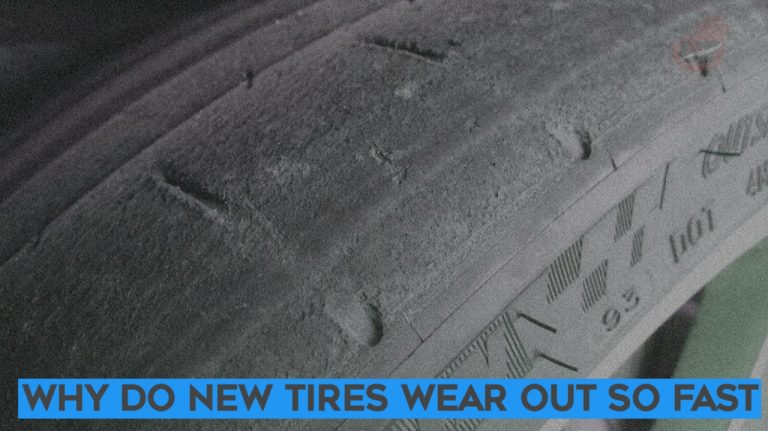New tires are supposed to enhance your on-road experience for some years before they finally start wearing out.
However, some tires often wear out so fast that they won’t be able to serve their purpose of providing safety, responsiveness, and traction.
The issue is usually caused by the type of tire you install on your car. However, frequent wear of tires depicts a problem with your car’s alignment, suspension, or brakes.
New tires wear out fast because of lousy driving habits, excess loads, wrong tire size, low-quality tires, lack of tire rotation, and improper tire pressure.
Without wasting much time, continue reading to get answers to the “Why do new tires wear out so fast” question.
Why do New Tires Wear Out so Fast?
One or a combination of the factors below will increase tire wear.
1. Installing low-quality tires
There are a lot of tires in the automotive aftermarket that might be price-friendly but aren’t trustworthy.
You must invest your time and money into purchasing high-quality tires that’ll serve you long-term.
Also, depending on your car model, the manufacturers have specific tire types that’ll work well on the vehicle. Installing lower specifications will lead to untimely wearout.
2. Driving Habits
Bad driving habits such as hard braking, harsh cornering, hard launching, dry steering, overspeeding, and road cruising contribute to tire wearout.
While some tires were initially built to withstand some of these situations, using them abnormally will cause more significant damage to the tires.
3. Inappropriate Tire Model
Car manufacturers have specific tires that should be installed on a car to improve its performance.
We have all-season tires, winter tires, all-terrain tires, mud terrain tires, and the like, and each was built to withstand different conditions.
You can check the manufacturer’s guide for the best tire that suits your vehicle.
4. Improper tire Pressure
Car manufacturers recommend that the air pressure in a tire should be between 30 and 40 PSI. Inflating your tire above this pressure will result in tire explosion or increased wear.
Also, if your tire pressure isn’t up to the recommended PSI, you’ll experience massive wear on the tires.
So, the best fit is to introduce the correct air pressure into the tires.
5. Excess Loads
Loads on the vehicle usually tell on the tires, so you’ll notice a tire decrease once you put an excess load on your car.
This will increase the stress on the tire walls, bringing it closer to the ground while driving and braking.
6. Incorrect Wheel Alignment
The alignment of your wheels helps to ensure that your tires are parallel to one another and are at a right angle to each other.
An incorrect Wheel alignment will cause friction and uneven tire angles, leading to increased wearout.
You can take your car to a mechanic if you notice that your car tires aren’t parallel to each other.
7. Worn-out suspension
The suspension aids in recovering when you hit bumps or potholes. Once the suspension is faulty, the whole job goes to the tires.
If a worn-out suspension isn’t taken care of on time, it will cause wheel misalignment, a 2-in-1 issue.
8. No tire rotation
Frequent tire rotation helps increase your tires’ lifespan and promotes safety by balancing the tire pressure.
So, it’s beneficial to rotate your car tires whenever you take them for maintenance.
9. Faulty Brake System
If the brake pads are bad or worn out, you’ll notice a tap wear out of your car tires. A sticky disc or caliper is included.
10. Bad Power Steering
FAQs
As an Amazon Service LLC Program Associate, V. Auto Basics earns from qualifying purchases. See Our Affiliate disclaimer.
